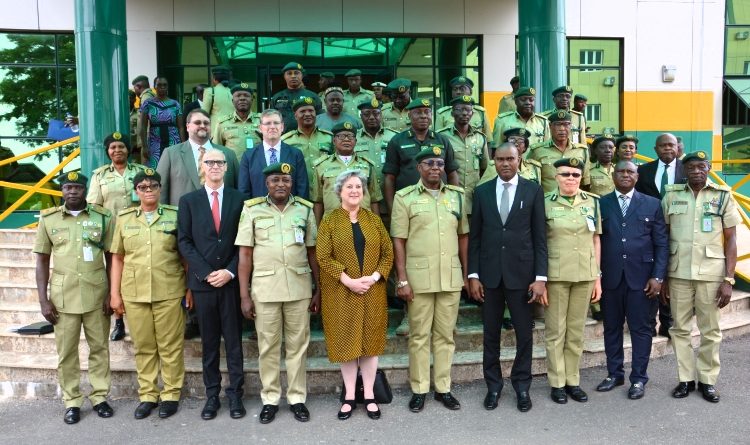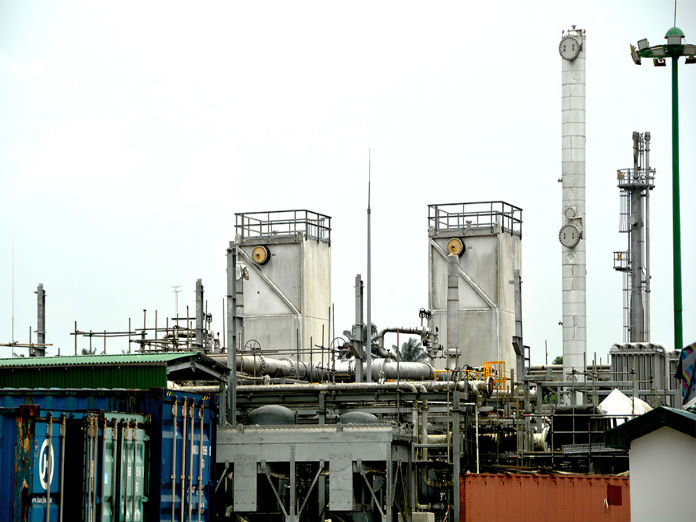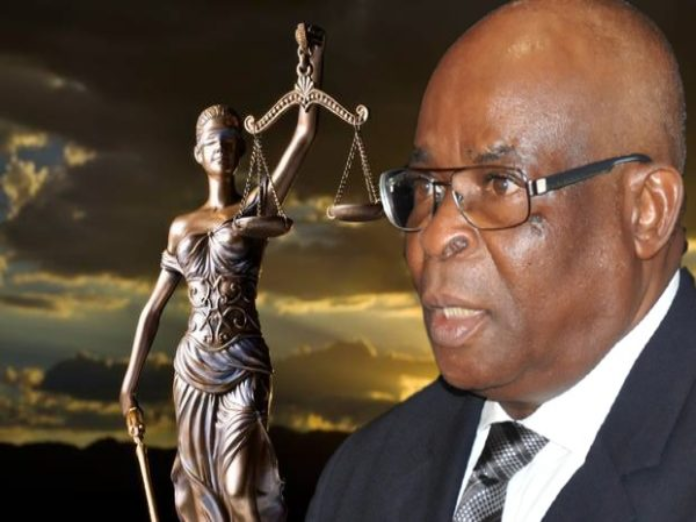UNODC Country Office Nigeria, and the USA And NCoS Collaborate in building Capacities in the North East.
Oru Leonard
The United Nations Office on Drugs and Crime (UNODC) Country Office Nigeria (CONIG) with its partners, the Nigerian Correctional Service (NCoS) and the United States Embassy and U.S. Department of State’s Bureau of International Narcotics and Law Enforcement Affairs (INL), marked the official launch of the project: ‘Strengthening the Capacity of the Nigerian Correctional Service in the North-Eastern States’.
The project is to strengthen the capacity of the Nigerian Correctional Service (NCoS) has been launched in Abuja, to ensure the safe, secure and humane custody of pre-trial detainees and sentenced prisoners in selected facilities in North-Eastern States.
According to UNODC statement, with 71% of an overall prison population of 71,584 being inmates who are awaiting trial and the reported rise in violent crime across Nigeria, the intervention is timely.
The 3-year project, which is funded by INL, aims to assist the NCoS in building sustainable capacities in selected main facilities in the North East to ensure safe, secure and humane custody, taking particular account of the special situation of pre-trial detainees and the need to enhance the provision of rehabilitation and/or social reintegration support for all prisoners. Also in light of its geographical focus, the project will encompass detainees and prisoners held for an (alleged) association with Boko Haram and include tailored interventions for this particular category.
By doing so, the project will build on the extensive experience and tools which UNODC has developed over decades to assist countries in managing their prisons systems in line with international standards and norms.
Building sustainable rehabilitation and reintegration capacities of the NCoS, including with regards to the management of VEPs, will ultimately ensure that inmates are treated in line with their human dignity, and can support themselves self-sufficiently upon release, thereby reducing recidivism and the risk of Boko Haram and professional criminals of recruiting new followers from amongst the (former) prison population.
Genuine efforts have already been made by the Nigerian Government and the NCoS to meet the Nelson Mandela Rules, particularly through the passage of and early efforts to implement the Nigerian Correctional Service Act 2019. With the support of the Presidential Committee on Corrections Reforms and Decongestion as well as state Attorneys General and Chief Judges, the NCoS was able to successfully present the cases of roughly 3,000 inmates for release in a bid to decongest the prisons in the wake of the COVID19 pandemic.
The service, under the leadership of the Controller General of Corrections, Haliru Nababa ficmc mni, has strengthened partnerships with international partners such as the UNODC with the aim of adopting best global practices in a way that only sharing ideas and experiences can. In his welcome address, the Controller General of Corrections stated that it was his ‘firm belief that, like every other intervention the NCoS has enjoyed from both UNODC and INL, this project will go along way in aiding significant value to the operations and administration of the Correctional Service’.
The project aligns with the 2021 United Nations Common Position on Incarceration which at the global level aims at: shifting policies towards prevention and non-custodial measures,
improving prison conditions and strengthening prison management, and
advancing the rehabilitation and social reintegration of offenders.
In Nigeria, UNODC seeks to translate these broad objectives into concrete actions aimed at improving the welfare, rehabilitations and reintegration of prisoners. For further information see UNODC’s Strategic Vision for Nigeria.
Speaking at the event, Controller General of Corrections (NCoS), Haliru Nababa, expressed confidence that, like every other intervention the NCoS has enjoyed from both UNODC and INL, the project will go a long way in adding significant value to the operations and administration of the Correctional Service.
The project aligns with the 2021 United Nations Common Position on Incarceration and will complement the efforts of the Nigerian government and in particular of the NCoS to meet the requirements laid out in the Nelson Mandela Rules which have been domesticated in the 2019 Nigeria Correctional Service Act.




